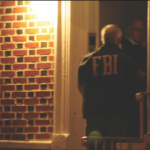A Motion to Suppress Can Result in the Dismissal of All Charges
A person generally expects privacy in a wireless carrier’s cell-site location information revealing the person’s physical movements. If evidence is suppressed, all charges might be dismissed.

Carpenter v. United States – Suppression of Illegally Seized Evidence
In Carpenter v. United States, the defendant was charged with a series of robberies involving numerous people in Michigan and Ohio. The federal government obtained court orders directing wireless carriers to disclose cell site location information (CSLI). The United States Attorney’s Office based the request on the Stored Communications Act (SCA). The SCA requires “reasonable grounds” to believe the records are “relevant and material to an ongoing criminal investigation.” This burden is less restrictive than the “probable cause” requirement of the 4th Amendment. The government obtained 127 days of data from MetroPCS and two days of data from Sprint. A defense lawyer seeks to suppress illegally seized evidence with a motion and evidentiary hearing.
The records revealed that whenever a cell phone taps into the wireless network, the wireless carrier logs a time-stamped record of the cell site location. From this information, the government established the defendant’s location near the robberies when they occurred.
Formal Charges Dismissed Due to Motion to Suppress Illegally Seized Evidence
Carpenter was federally charged with and convicted of six counts of robbery and firearms offenses. Carpenter filed a motion to suppress the CSLI provided by the wireless carriers on the grounds that obtaining the data without a warrant supported by probable cause violated the Fourth Amendment. The United States Supreme Court reversed the convictions and held that individuals have an “expectation of privacy in the record of their physical movements as captured through CSLI.” The Court explained that “the time-stamped data provides an intimate window into a person’s life, revealing not only his particular movements, but through them his ‘familial, political, professional, religious, and sexual associations.’” The Court considered government access to CSLI an intrusion into privacies of life that “is remarkably easy, cheap, and efficient compared to traditional investigative tools.” The Court concluded that seven days of access to CSLI data is enough to be a “search” under the Fourth Amendment. The Court held that the Fourth Amendment was violated in this case because the government failed to obtain a warrant supported by probable cause.
Issues that will inevitably be addressed in future federal and state court decisions will involve whether “real-time CSLI” or “tower dumps,” i.e., “a download of information on all the devices that connected to a particular cell site during a particular interval,” would be a “search” under the Fourth Amendment.

Motion to Suppress Illegally Seized Evidence
An experienced criminal defense lawyer will carefully examine the evidence in state and federal cases to determine if a client’s 4th Amendment right against unreasonable searches and seizures has been violated. If a viable argument can be made, the lawyer will file a Motion to Suppress Illegally Seized Evidence, and the court will conduct an evidentiary hearing. If the court rules that the search violated the Constitution, the evidence will be suppressed and can no longer be used against the defendant. These rulings frequently, but not always, result in the dismissal of the charges.
How The Best Criminal Defense Lawyers Use the Constitution to Defend Clients
In the realm of criminal defense, the Constitution is not just a document outlining the foundation of American law; it’s a powerful tool wielded by the best defense attorneys to protect their client’s rights. At LEWIS & DICKSTEIN, P.L.L.C., Michigan’s premier criminal defense law firm, our attorneys expertly use the Constitution to defend clients, ensuring justice and fairness under the law. Here’s how they do it:
The Second Amendment: The Right to Keep and Bear Arms – A criminal defense attorney can defend a client against gun charges by invoking the Second Amendment, which protects an individual’s right to keep and bear arms. By carefully examining the specifics of the case and the charges brought against the client, the attorney can argue that the client’s actions were within the scope of their constitutional rights. This might involve challenging the legality of any statutes or regulations under which the client has been charged, asserting that they infringe upon the Second Amendment rights. Additionally, the defense might focus on demonstrating that the client’s possession, use, or carrying of a firearm complied with federal and state laws and that any actions the client took were lawful expressions of their constitutional rights.
The Fourth Amendment: Guarding Against Unreasonable Searches and Seizures – The Fourth Amendment protects citizens from unreasonable searches and seizures by the government. Our attorneys meticulously scrutinize the details of any search or arrest to ensure that law enforcement does not overstep their bounds. Evidence obtained without a proper warrant or under unlawful circumstances could be excluded from trial, significantly impacting the prosecution’s case.
The Fifth Amendment: The Right to Remain Silent – The Fifth Amendment provides protection against self-incrimination, a cornerstone of fair legal proceedings. LEWIS & DICKSTEIN, P.L.L.C. attorneys counsel clients on their right to remain silent, ensuring they do not inadvertently harm their defense. This amendment also empowers our lawyers to challenge the admissibility of confessions or statements that may have been obtained through coercion or without proper Miranda warnings.
The Sixth Amendment: Ensuring a Fair Trial – The Sixth Amendment guarantees the right to a speedy trial, an impartial jury, and adequate legal representation. Our defense team leverages these rights to ensure clients receive a fair trial within a reasonable time frame. They meticulously prepare for trial, select juries without bias, and provide aggressive representation to safeguard the client’s rights throughout the legal process.
The Eighth Amendment: Protection Against Excessive Bail and Cruel Punishment – The Eighth Amendment’s protection against excessive bail and cruel and unusual punishment allows our attorneys to argue for reasonable bail conditions, ensuring clients remain free while awaiting trial. Additionally, in sentencing phases, they advocate against disproportionate penalties, aiming for fair and just outcomes.
The Fourteenth Amendment: Equal Protection Under the Law – The Fourteenth Amendment’s guarantee of equal protection under the law is crucial in defending clients against discriminatory practices and biases. Our attorneys are vigilant in ensuring that clients’ rights are respected, regardless of race, religion, gender, or socioeconomic status, advocating for equal treatment and justice for all.
At LEWIS & DICKSTEIN, P.L.L.C., the Constitution is more than a historical text; it’s a living, breathing instrument of justice. Our attorneys’ profound understanding of constitutional protections, combined with their commitment to defending clients’ rights, sets them apart as leaders in criminal defense. By leveraging the Constitution’s power, they ensure that every client receives the vigorous, effective defense they deserve, reinforcing the firm’s reputation as Michigan’s premier criminal defense law firm.

The Criminal Defense Team That Always Fights to Suppress Illegally Seized Evidence
The strategic use of the Constitution and motions to suppress illegally seized evidence underscores the profound expertise and commitment of the attorneys at LEWIS & DICKSTEIN, P.L.L.C. to securing justice for their clients. By meticulously applying constitutional protections and challenging the admissibility of evidence obtained in violation of those rights, our attorneys not only safeguard the foundational principles of our legal system but also ensure the best possible outcomes for those they represent. This approach is a testament to the firm’s dedication to upholding the rule of law and its unwavering commitment to providing the highest caliber of defense.
Whether navigating complex legal challenges or advocating fiercely in court, LEWIS & DICKSTEIN, P.L.L.C. stands as a beacon of hope for those facing criminal charges, proving time and again that with the right defense team, the scales of justice can indeed be tipped in favor of the accused. If you have a question about whether your constitutional rights have been violated or want a very experienced criminal defense lawyer to help you with your felony or misdemeanor charges, please call LEWIS & DICKSTEIN, P.L.L.C. We will find a way to help you even when no one else can.
Call us today at (248) 263-6800 for a free consultation or complete an online Request for Assistance Form. We will contact you promptly and find a way to help you.












